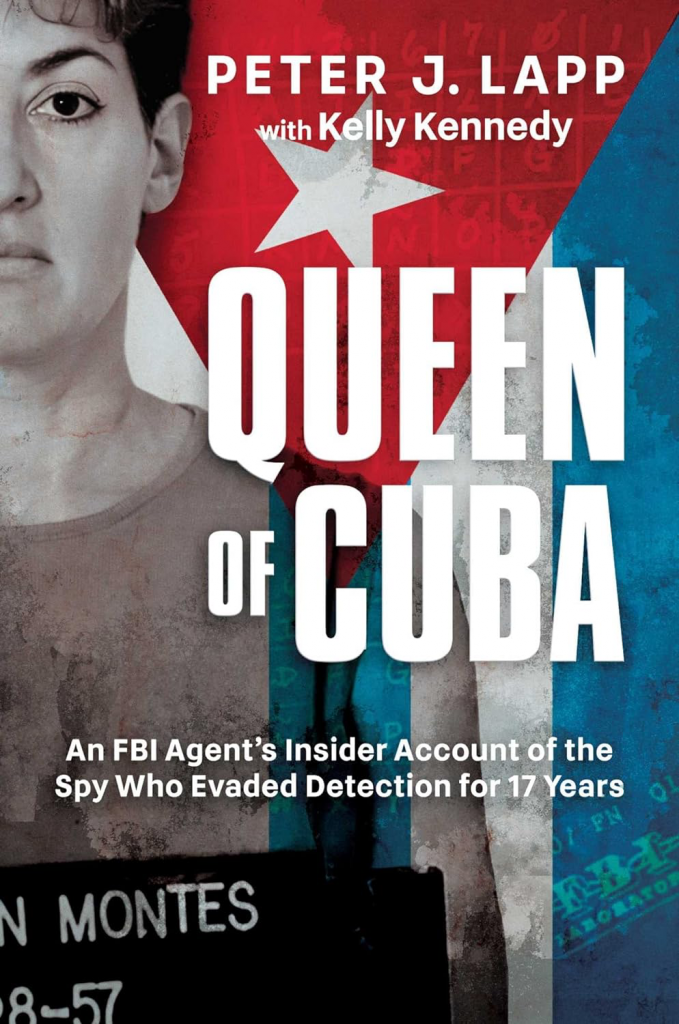ARC Review: Queen of Cuba by Peter J Lapp
by Callan Whitley

“When you picture spies, you may think of martinis, sweet cars, and sexy clothes. That wasn’t Ana. She didn’t go out with coworkers. She behaved awkwardly at parties. She hadn’t had good luck dating. She filled her apartment with academic books about South America and traveled often to the Caribbean for “work” vacations, but her coworkers found her intellectually arrogant — always the smartest one in the room, but some people handle those situations with more grace than others. She treated colleagues’ ideas with boredom and annoyance.”
Written by one of the FBI agents who put her in handcuffs, Queen of Cuba is a detailed account of the spy who spent seventeen years stealing highly classified US government information for the Cuban government. The 238-page blend of nonfiction and memoir examines Ana Montes—the woman who hid in plain sight as a DIA Analyst while she secretly handed over the United States’ secrets to Cuba at sit-down Chinese restaurants. Peter Lapp’s book follows the FBI’s thrilling hunt to catch the United States government’s mole in 2001.
The book flips between a chronological account of Ana’s rise to one of Fidel Castro’s most trusted spies and a narrative of Lapp’s own life and his journey in entering the FBI. While I see that Lapp was clearly trying to establish some pathos, I found that every time the text switched to a chapter featuring his experiences, he slammed the breaks on his own book. The tension dissipated and I was completely pulled out of the story. Early on in the book, the writing style fell into a trap of repetitive chapter openers, cliche lines, and formulaic grasps at the reader’s attention.
The parts where this book really succeeds are when Lapp stops talking about himself and writes about Ana’s complexities and contradictions as a human being. He includes details about Ana that I’m sure are a product of the FBI’s intense profiling, including that she kept anxiety-relief tapes next to her bedside table and that she almost dropped everything for a chance to find love. Further, I thought the pictures Lapp integrated into the text worked well to establish the stakes of the story. Specifically, Lapp features a grainy black and white FBI surveillance photo of Montes sending a text to a Cuban-controlled pager five days after the 9/11 terrorist attack. It was moments like these that enthralled me as Lapp described how the FBI raced against time to catch her before she informed Cuba about America’s plan for war against Afghanistan.
While at times I thought Lapp’s writing style was a little pompous, I found the book to be highly informative on the historical background of Cuban and US political tension. Lapp’s insider knowledge as an FBI agent who worked so closely with the case provided intriguing, compelling details to a story so widely, yet not intensely, known in US history.
Lastly, I wanted to note that there is a point in the book where it tells you exactly how to evade a government-issued polygraph (lie detector test), which I guess was pretty cool in case I ever need to know that information. Overall, I would recommend this book to people like my dad—guys with a lot of time on their hands and probably a history major from college.

History majors are very interesting and smart .